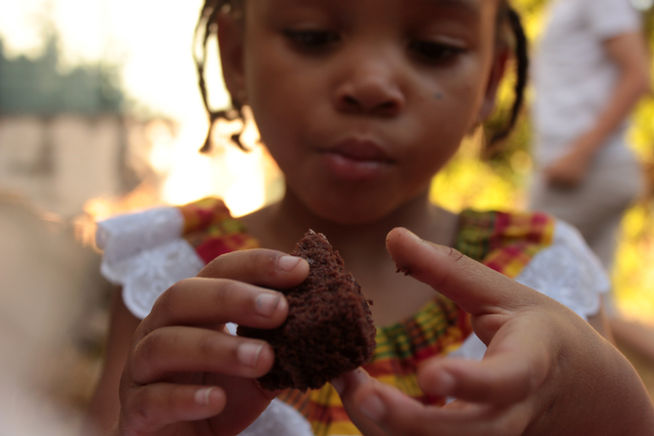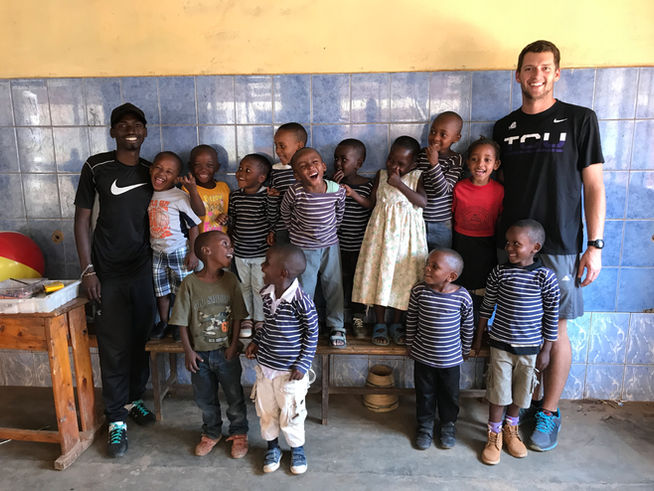approach
__ TBRI PROSPECTIVE

Many of our children come from complex families and may have been victims of poverty, famine and genocide.
The history behind a country like Rwanda has left entire generations of young people with psychological problems and difficulties in relating to one another which could be termed as “relational trauma.”
The social skills of our children, influenced by the context from which they come, interfere in their process of maturational development. For this reason, from Gisimba we work to improve the quality of life of these groups, offering educational programs after school programs that provide the opportunity to continue learning and interacting with other children. We offer workshops and classes in different disciplines to complement the formal education received in the schools.
We believe that all children have the right to a decent and quality education. For all this, from Gisimba we work under the Trauma-informed intervention called Trust-Based-Relational Intervention.
Our programs are thought, discussed, designed and taught taking into account the great variety of factors and psychosocial differences that our children may have.
Many of them do not have parents, others live in families with limited resources, others have been born and raised in families with a lot of trauma and abuse, generating an entire generation of young people with a lack of self-knowledge and emotional regulation.
Our educational services consider the individual differences of each student and thus allow us to intervene.
Our volunteers are trained in a trauma-informed approach of TBRI to learn how contextual factors can influence a child's behavior and how it can be well shaped.
We firmly believe that every child can progress and improve, as long as the teacher gives them a hand and offers them enough tools on their personal learning journey. We are committed to inclusive education, and we emphasize the psychological understanding of children from hard places.
Article in Rwanda New Times on our Trauma Informed Approach
https://www.newtimes.co.rw/lifestyle/why-trauma-informed-approach-care-essential
SEE THE NEED
BEHIND THE BEHAVIOUR
TBRI MANTRA-
this is our range of activities

volunteers
girls empowerment
Dance
parents
sports
kids
family mentorship
nutrition suport
tbri training
ngo
schools
services
GMC tbri approach
nutrition
early chilhood development
Music
our programs
music
nutrition
girls empowemenT
dance
Early childhood development
sport activities
Trauma-Informed training with parents and caregivers
ALL OUR PROGRAMS ARE DESIGNED UNDER TRAUMA INFORMED CARE
We also offer activities geared toward parents. At Gisimba we believe that this work begins in families and ends in schools, for this reason, we work designing programs aimed at families to foster positive child-parent relationships and involve families in the education of their children.
our impact
Currently, in Rwanda, there is an improvement in children enrolled in primary schools as they represent almost 100%, but despite a significant enrollment rate in primary schools, there continues to be a problem in pre-primary schools.
Only 17% of children under 6 years old have access to quality education (www.unicef.un).
In the last decade, Rwanda has made significant strides in the protection and development of children, including the initiation and approval of the ECD (Early Childhood Policy) policy.
Although we work hard to promote education in the country, we continue to observe that only 13% of children who only live in urban areas and who are from families with resources.
If we look at the overall rate of primary school completion of the Rwandan population, which is still low, there is a problem in access to schools for children from vulnerable communities.
All this causes a growing number of children with juvenile delinquency behaviors and of those who flee for life on the street, due to the instability of their family structure, the lack of parental control, poverty and the maladjustment of the childhood environment, and the lack of teachers with training in childhood trauma, all affecting the general development of children.







